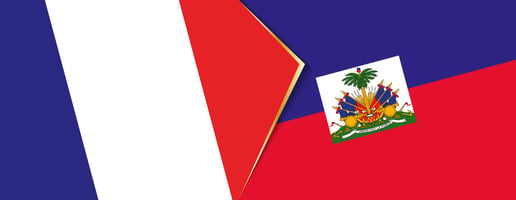In today’s increasingly diverse and interconnected world, effective communication is more important...
Haitian Creole: The Language Of Freedom
Every October, International Creole Month provides us with the opportunity to pause, reflect, and celebrate the beauty, history, and resilience of Creole Languages around the world. For millions of speakers, Creole is not just a way of communicating, it is an identity, a living archive of cultural heritage, survival, and strength.
Among the many Creole Languages spoken globally, Haitian Creole stands out as both a unifying voice for the people of Haiti and a symbol of the ongoing fight for Linguistic Justice.
The Origins of Creole Languages

Creole Languages were born out of necessity, resilience, and creativity. Emerging during the colonial era, they developed in societies marked by slavery, displacement, and cultural blending. Enslaved people, forced together from different African nations and communities, created new languages that allowed them to communicate with one another and with colonial powers. The result was a unique linguistic fusion, combining African, European, and sometimes Indigenous influences. These languages carried the rhythms, worldviews, and resilience of their speakers, even in the face of unimaginable hardship.
Despite their deep cultural heritage, Creole Languages have long faced marginalization. For centuries, they were dismissed as "broken" or "inferior" forms of European languages like French. But the reality is that Creoles are fully developed languages, with their own grammar, vocabulary, and expressive power. International Creole Month is a reminder that every language deserves recognition, respect, and pride.
The Fight for Recognition

In Haiti, this struggle for recognition has been especially significant. Haitian Creole (Kreyòl Ayisyen), sometimes called Haiti Creole by the diaspora, emerged during the colonial era as enslaved Africans forged a shared language out of diverse tongues. When Haiti won independence in 1804, Haitian Creole became the language of freedom, solidarity, and nationhood.
Still, for much of Haiti's modern history, French dominated official life, in government, education, and law. Haitian Creole was often stigmatized, seen as the language of the poor or uneducated, while French was considered the language of progress and prestige. This imbalance left many Haitians excluded from full participation in civic life.
That began to change in 1987, when Haiti’s Constitution officially recognized Haitian Creole as a national and official language alongside French. This was a turning point — not just legally, but symbolically. It affirmed that Haitian Creole is not a "dialect" or a second-class language, but the heart of Haitian identity. It was also an act of Linguistic Justice, restoring dignity to the everyday speech of millions.
Haiti’s Role in Linguistic Justice
Haiti’s Recognition of Haitian Creole was one of the earliest examples of a nation formally elevating a Creole language to equal status with a colonial tongue. This bold step inspired broader conversations around the world about the importance of protecting and promoting Creole Languages, from Mauritius to the Seychelles, from Louisiana to Cape Verde.
Today, Haitian Creole is spoken by more than 12 million people worldwide. It is taught in schools, used in media, and increasingly represented online. Yet, challenges remain. Access to quality education in Haitian Creole is still uneven, and global digital platforms often lack full localization in the language. That is why continued advocacy — and celebrations like International Creole Month, sometimes called Pride Month for Creole speakers — matter so much.
Why It Matters Today
Celebrating International Creole Month is not just about looking back, it’s about ensuring a better future. When languages are respected and promoted, communities thrive. Children learn best in their mother tongue. Citizens engage more fully when official information is in the language they use every day. And a nation is stronger when all of its voices are heard.
For Haiti, honoring Haitian Creole is about more than language policy. It’s about affirming the dignity of its people, strengthening democracy, and preserving cultural heritage. For the global community, it’s a reminder that every language, no matter its history, deserves respect and recognition.
A Living Legacy

Haitian Creole is not just a language of the past, it is a language of the future. Every song, proverb, poem, and conversation keeps it alive and evolving. As we mark International Creole Month, we celebrate not only the resilience of those who created it, but also the generations who carry it forward.
At its core, International Creole Month is about justice, pride, and belonging. And in telling the story of Haitian Creole, we remind the world that languages born out of struggle can become symbols of strength, voices that refuse to be silenced. For those still asking What is Haitian Creole? — it is more than words. It is a legacy, a language of unity, resilience, and hope.
Let us celebrate Haitian Creole this month and every month, our language, our story, our future.





